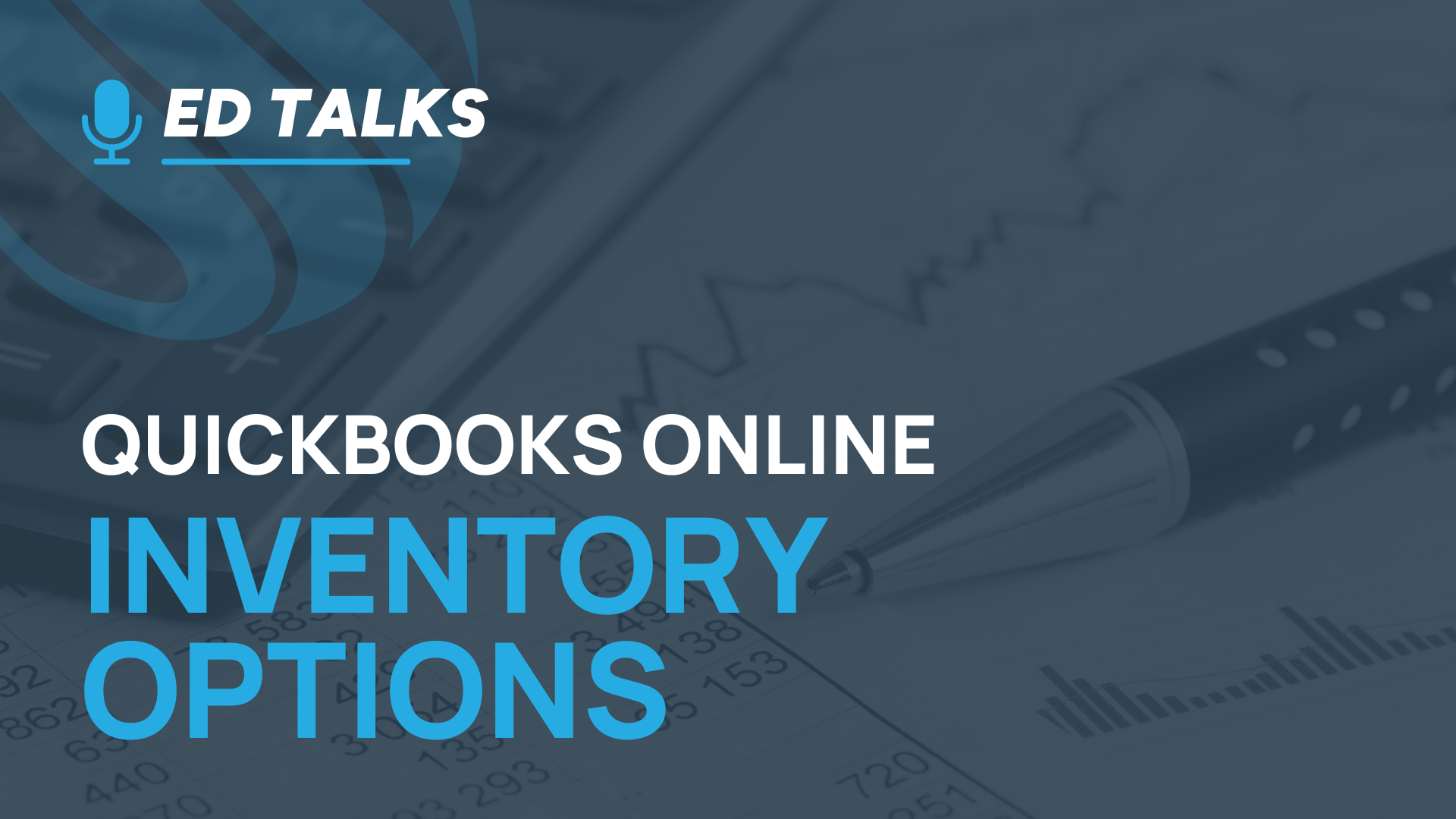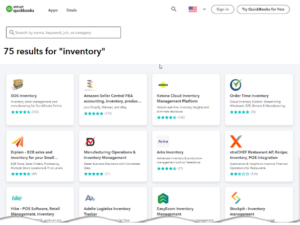
25 Mar Ed Talks – QuickBooks Online Inventory Options
In the previous edition of Ed Talks, we delved into the fundamental business requirements of an inventory management system. Now, let’s take a deeper dive into the available options for such systems.
While QuickBooks Online (QBO) offers inventory features, they are exclusively accessible in the QBO Plus or QBO Advanced editions and are, at best, extremely limited. For most companies heavily invested in inventory management, integrating a third-party add-on program becomes indispensable.
When transitioning to an add-on program for inventory management, it’s crucial to deactivate inventory in QBO. The aim is to prevent conflicting records between multiple systems vying to be the primary source for inventory data, including quantity on hand, available quantity, and inventory valuation. In this process, all QBO items would be designated as “Non-inventory parts,” with the inventory management program serving as the primary source for tracking stock levels for each item.
Any application that integrates with QBO must meet the strict requirements of Intuit’s API (Application Program Interface). That means that any system that will be allowed to connect with QuickBooks must follow the rules of authentication, valid accounting processes, and other business requirements. Any third-party app must follow the same rules for validating accounts, customers, vendors, product/service items, etc. as would a user manually typing data into QuickBooks. Apps that meet these standards and are vetted by Intuit are listed on apps.com.
Currently, searching for “inventory” on the Intuit app store returns 75 inventory related apps…that’s a lot of options!

Some of the apps are full-featured inventory management systems; others are integrations with an eCommerce web store such as Amazon, Shopify, or WooCommerce; and others are targeted for specific industries such as restaurants, automotive repair, or equipment rentals. Some of the add-on options are aimed at either manufacturers, wholesalers, or retail operations.
With so many options, how do you choose? I recommend starting with the app store. If an add-on program is not listed there, I wouldn’t trust it to connect with an accounting system. It also shows that the developer is invested in building an app that is certified to work well with QuickBooks. I find the reviews to be of limited use, especially the negative reviews (although sometimes they can be revealing). To me, it means that the reviewer did not take the time to understand how the app works before jumping into it. Some of my tips for learning how an app works and how it integrates with QuickBooks are listed below:
- Take advantage of the trial periods that most apps offer. Many app developers will extend the trial period for some length of time if you need it to properly evaluate the software. Have a clear test plan and acceptance criteria before starting your trial.
- Connect the app to a 30 – day trial QBO account. That way you can run through all your business functions and understand exactly how it works, your internal business workflows, and impact on QBO before committing to your live accounting system.
- Work with a consultant that has experience and/or is certified with your chosen app. They are familiar with implementation strategies pitfalls, strengths and weaknesses, etc.
- Review training materials or videos of the app in action to learn how it operates.
Of the many options available, SOS Inventory and Cin 7 are the two very popular systems.
SOS Inventory
5 Key Features:
- Real-Time Inventory Tracking:
- SOS Inventory offers real-time tracking of inventory levels, providing businesses with accurate and up-to-date information on stock quantities, locations, and movements. This feature helps prevent stockouts, reduces overstock situations, and ensures efficient inventory management.
- Sales Order Management:
- The platform allows businesses to efficiently manage sales orders, from creation to fulfillment. Users can easily create, edit, and track sales orders, manage backorders, and monitor the entire order fulfillment process. This feature helps businesses meet customer demands promptly and enhances overall order accuracy.
- Multi-Location Support:
- SOS Inventory supports businesses with multiple warehouses or locations. This feature enables users to track inventory across different sites, transfer stock between locations, and maintain visibility into stock levels at each warehouse. It’s particularly beneficial for businesses with diverse operational setups.
- Integration with QuickBooks:
- SOS Inventory seamlessly integrates with QuickBooks, a widely used accounting software. This integration ensures that financial and inventory data remain synchronized, reducing the need for manual data entry and minimizing the risk of errors. It provides a cohesive solution for businesses managing both inventory and financials.
- Manufacturing Capabilities:
- For businesses involved in manufacturing processes, SOS Inventory offers features to create and manage bills of materials (BOMs), work orders, and production workflows. This manufacturing module helps businesses optimize their production processes, control costs, and ensure efficient assembly of finished goods.
Cin7
5 Key Features:
- Multi-Channel Sales Integration:
- Cin7 provides a centralized platform for managing inventory across various sales channels, including e-commerce platforms, brick-and-mortar stores, and online marketplaces. This feature allows businesses to synchronize sales data, inventory levels, and order processing seamlessly, ensuring consistency and accuracy across multiple channels.
- Advanced Inventory Tracking:
- Cin7 offers robust inventory tracking capabilities, allowing businesses to monitor stock levels, track movement, and manage serialized or batch-tracked items. With real-time visibility into inventory data, businesses can make informed decisions, prevent stockouts, and optimize their replenishment processes.
- Order Management and Fulfillment:
- The platform facilitates efficient order processing from creation to fulfillment. Cin7 automates order workflows, manages backorders, and provides tools for order customization. This feature ensures timely and accurate order fulfillment, enhancing customer satisfaction.
- Integrated Point of Sale (POS):
- Cin7 seamlessly integrates with Point-of-Sale systems, enabling businesses to manage both online and offline sales from a unified platform. This integration ensures that inventory levels are synchronized across all sales channels, providing a holistic view of stock movements and sales performance.
- B2B E-commerce Capabilities:
- Cin7 includes features specifically designed for businesses engaged in B2B (business-to-business) transactions. This includes functionalities like customizable pricing, quoting, and order approval workflows. This B2B focus makes Cin7 suitable for wholesalers and distributors with complex pricing structures and negotiation processes.

























